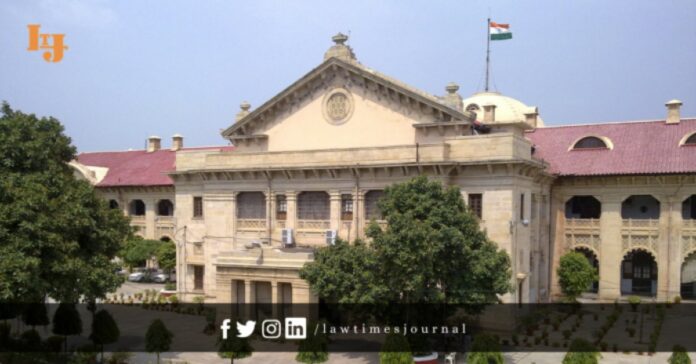
The Uttar Pradesh government was recently slammed by a seven-judge bench of the Allahabad High Court over issues relating to court infrastructure and operations in the state.
The Court cited an example of this when it said,
“The children who attend proceedings in the Special Courts have no restrooms or waiting rooms.”
Acting Chief Justice Munishwar Nath Bhandari, along with Justices Pritinker Diwaker, Naheed Ara Moonis, Manoj Misra, Sunita Agarwal, Surya Prakash Kesarwani, and Manoj Kumar Gupta, chastised the State administration for offering “lame justifications” to justify its inaction.
The State Government has yet to make a decision, despite the fact that its inaction was attempted to be justified in court by making flimsy arguments. “We express our dissatisfaction with the manner in which the State authorities are proceeding on the major matters pertaining to the administration of the Courts in the State of UP,” the Bench wrote.
After the Court’s work was hampered/interrupted by boisterous counsel, the Court was considering a suo motu public interest litigation (PIL) petition filed in 2015.
It issued directives in May 2019 for the preparation of designs for the availability of courtrooms, chambers, ancillary amenities, and housing for judicial personnel across the subordinate judiciary.
District judges were asked by the High Court’s administrative committee to work with District Magistrates to identify lands that are needed and can be made available for the construction of suitable facilities in subordinate courts. However, as the Bench points out,
“Despite several reminders, no effective action on this issue has been taken. Despite the passage of time, the acquisition procedure in many regions has not been finished.”
The Bench observed the paucity of basic facilities for which the judiciary is reliant on the State government in its ruling issued last week. It also voiced dissatisfaction with the way special courts operate across the state.
“The Special POCSO Courts of the State Government are forced to work in regular courtrooms, with no special accommodations for the child victims. The minors attending the proceedings in the Special Courts have no waiting places or even washroom facilities “According to the Court.
The State’s Additional Advocate General notified the Court that a special team of experts would be dispatched to these courts on a regular basis to monitor the security system and related issues.
The Court responded by saying,
“We anticipate that necessary action will be taken as soon as possible, as approved by the State.”
The Court also stated that no effective action has been done in the question of subordinate courts receiving land for court complexes and residential housing.
Despite repeated warnings, the acquisition process in many districts has yet to be completed, despite the passage of time.”
Other suggestions provided by the Court include rewards for retired judges and the transfer of cases belonging to the old Land Acquisition Act of 1894 to guarantee the best use of resources, and the appointment of a Nodal Officer to act as a bridge between the Registrar General and several departments of the State government’s Secretariat were all ignored, according to the Court.
The Court observed on the second problem, “The State Government has yet to make a decision, despite the fact that its inaction was sought to be justified in court by making flimsy arguments.” In response, Advocate General Raghvendra Singh promised the Court that on or before the next date of listing, a decision will be made on the matter of benefits for retiring judges.
On all other matters, he promised the Court that he would cooperate with the officers of the respective departments, whether they were local District Magistrates or senior-most Secretariat/Departments of the State government personnel. The case was adjourned and will be heard again on October 27th, based on the AG’s promise.





